You know building your brand is a crucial step to crafting your dream business. This workbook is designed with you in mind to simplify those steps.
Take the 3 day course building challenge
How to Overcome Imposter Syndrome Based on Your Enneagram Type
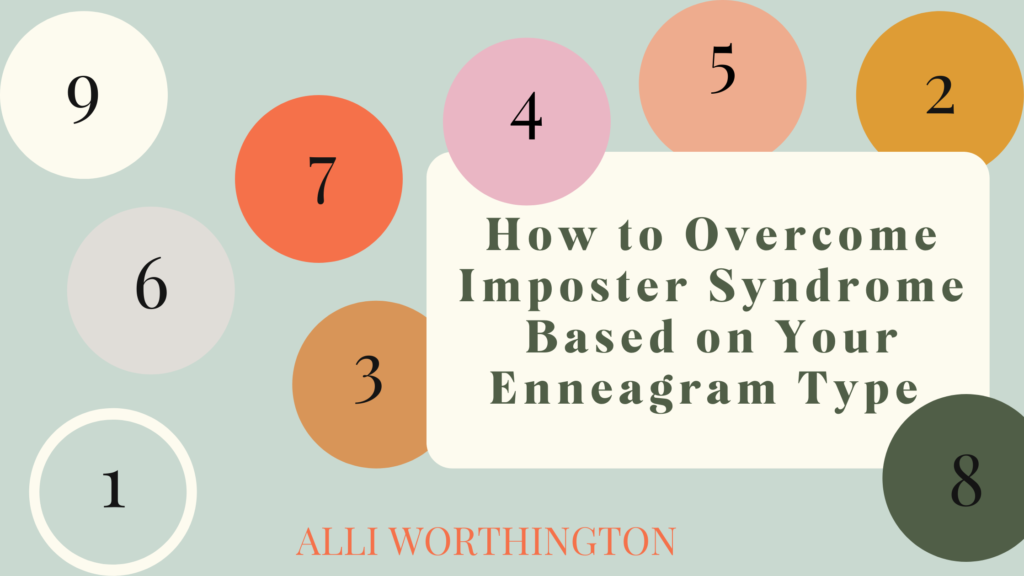
One of the reasons imposter syndrome can be hard to spot is that it’s the ultimate shapeshifter, morphing into different forms based on our fears and desires.
Psychologists suggest that our personalities influence imposter syndrome impacts each of us in different ways.
That’s why I recommend we look at the Enneagram to identify specific strategies to help us overpower imposter syndrome.
The Enneagram is a typology system that helps people interpret the world, connect interpersonally, and manage their emotions by categorizing them into nine different personality types.
While these strategies could work for anyone, I recommend a specific plan for each personality type that keeps your core motivations and desires in mind.
The following personality descriptions have been adapted from The Enneagram Institute and are found in greater detail on their website.
The Reformer (1)
Ones are highly self-controlled and like to be correct. If you’re a Reformer, you spend an excessive amount of time considering multiple outcomes and planning accordingly.
You have a fundamental desire to be balanced, but you can feel like an imposter when you’re imbalanced and unprepared.
Strategy: Put yourself in situations where you will make mistakes more often. Making a mistake is a sign that you took a risk, that you believed in yourself enough to know the dreams in your heart are worth the trouble you took and the lessons you learned.
Failing doesn’t mean you’re a failure.
Failing means you’re doing the work, and believe it or not, you’re further along on your journey than you were before you failed.
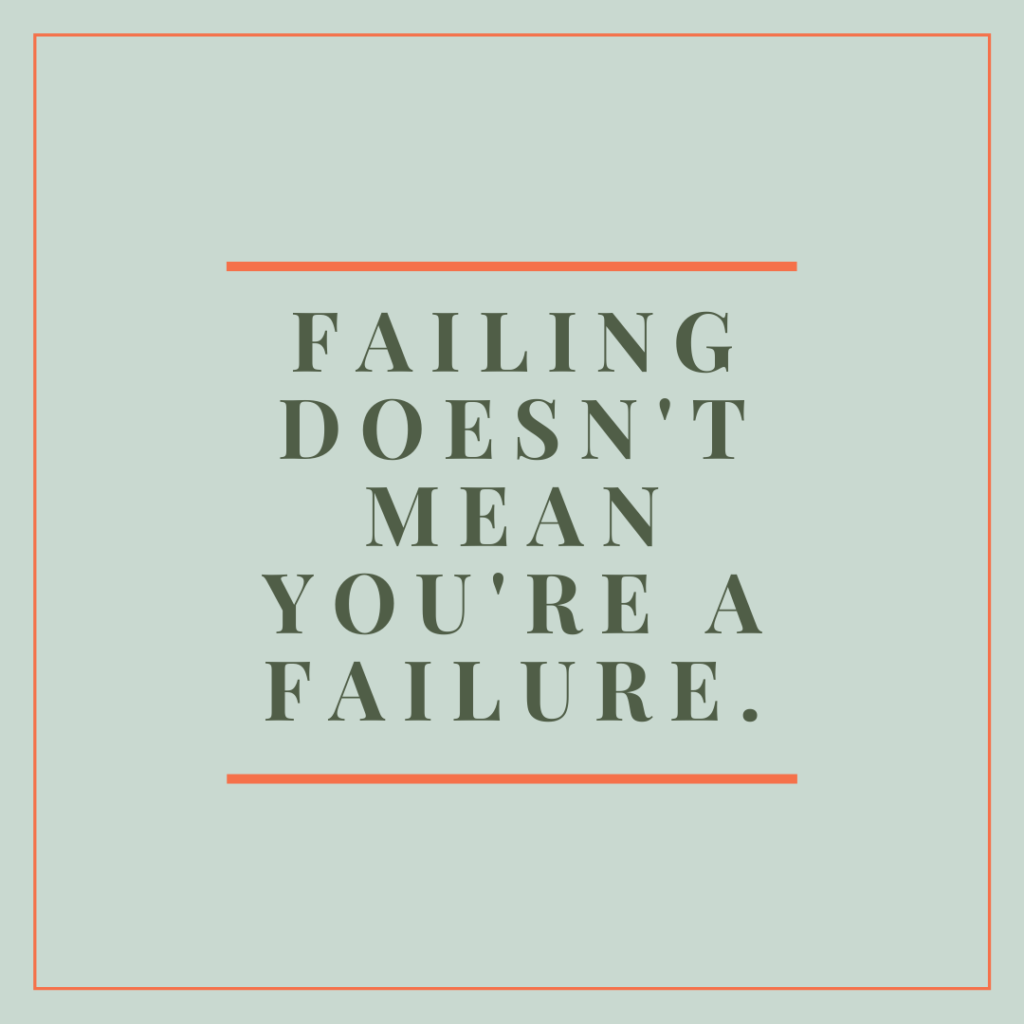
The Helper (2)
Helpers are empathetic and self-sacrificing. If you’re a Two, you have a fear of being unwanted or unworthy, and you may feel like an imposter when your family, friends, or team members begin to operate more independently so that they can learn new things for themselves.
Strategy: Affirm yourself more often, and talk to yourself like you’re your best friend. You would never discredit your best friend or try to diminish her accomplishments.
Stop doing it to yourself, and remember that your people still need you. They just need to figure out what areas they can enlist your help.
The Achiever (3)
Achievers are status-conscious and highly driven for advancement. If you’re a Three, you have a deep fear of being worthless, and you like to feel valued.
When you begin to feel stagnant or as if advancement opportunities have passed you by, you start to feel like an imposter.
Strategy: Incorporate systems to reward yourself so that you don’t rely solely on external validation or other people’s approval.
It could be something small like a treat at the end of the week or something more extensive like a conference or a vacation when you make a specific milestone you’ve worked hard to achieve.
The Individualist (4)
Although individualists or Type Fours often fear a lack of personal significance and tend to define themselves through comparison with others, those of you who identify as Fours have a desire to find yourselves.
When you look for characteristics unique to you, you may feel led to compare yourself with others. Unfortunately, it’s an easy trap to get stuck in, feeling like an imposter.
Strategy: Stop comparing yourself with others. There is a time to admire others, but it can have devastating effects when it leads you to focus more on who you want to be than who you have become.
We all have an idealized self-image, but forgetting to separate your authentic self from that ideal will cause your self-esteem to plummet.
Create a healthy point of reference and remember that although you have a lot to learn, you have learned a lot already.
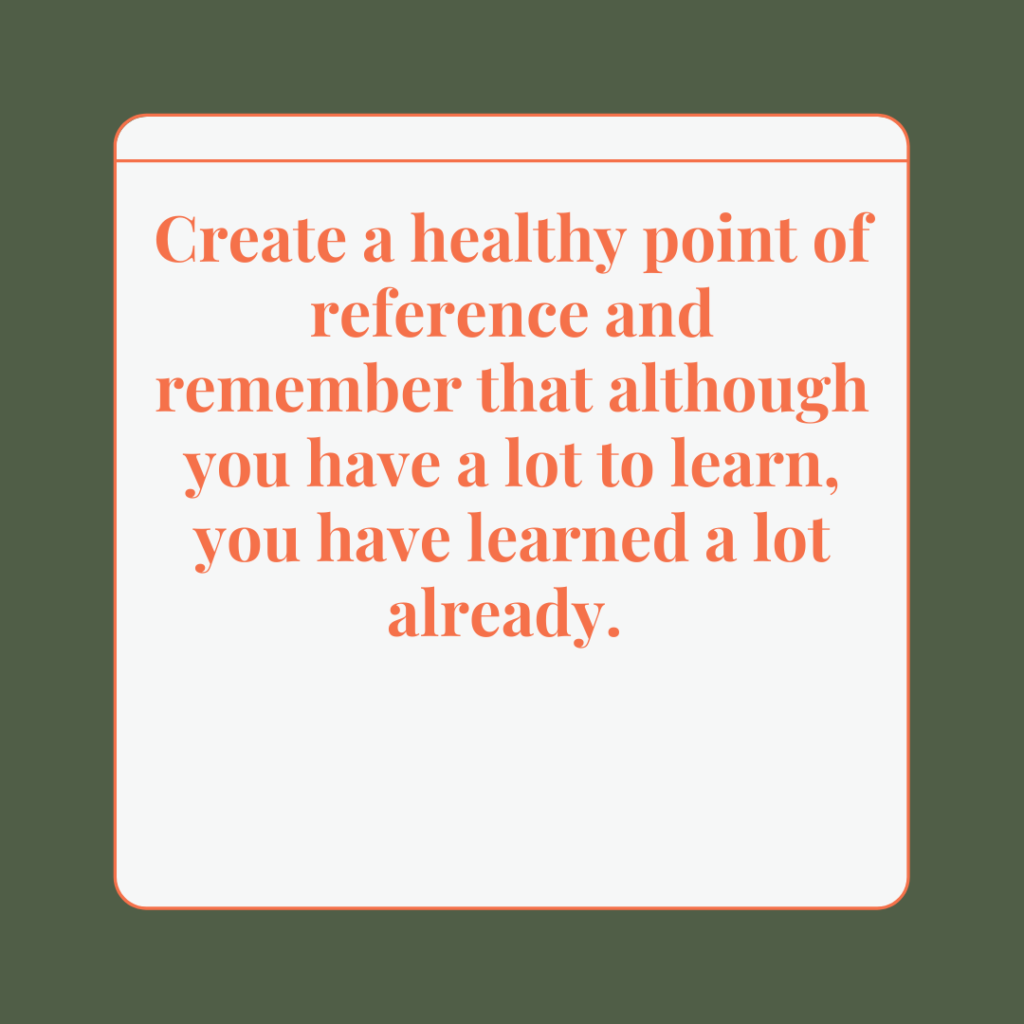
The Investigator (5)
Type Fives are alert, insightful, and curious, but Fives fear being useless, helpless, and incapable. Investigators have an earnest desire to be capable, and when you feel anything but that imposter syndrome starts to creep in.
Strategy: Slow down and take inventory of what you’ve accomplished. Could it be that you’ve accomplished so much that you’ve stopped celebrating the little milestones?
That’s a clear way to lose focus on how far you’ve come, and it’s time to redirect your attention to yourself.
Become curious about who you are and spend time considering the many things you’re capable of accomplishing based upon your expertise.
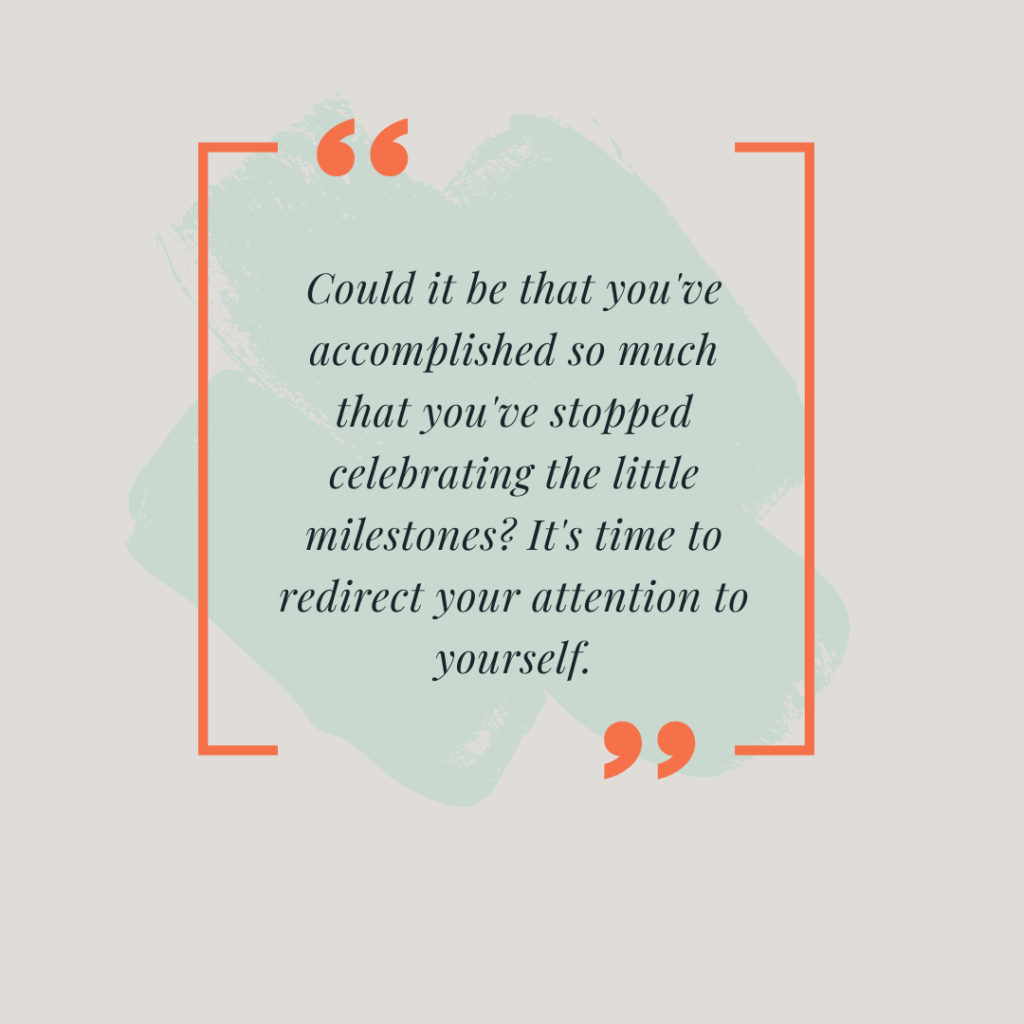
The Loyalist (6)
Loyalists are committed and security-oriented. While hardworking, Sixes can also run on stress while complaining. If you’re a loyalist, you have a basic fear of being without support.
Unfortunately, what you fear most can also stand as the reason you resist the help you have and take on too much.
You feel like an imposter when that fear starts to overwhelm you.
Strategy: Retrain your brain. Recognize that imposter syndrome may have worked in your favor for a time. It could have fueled your productivity by helping you accomplish more than you initially believed of yourself.
However, it is no longer supporting you. Challenge your definitions of success and begin to redefine them.
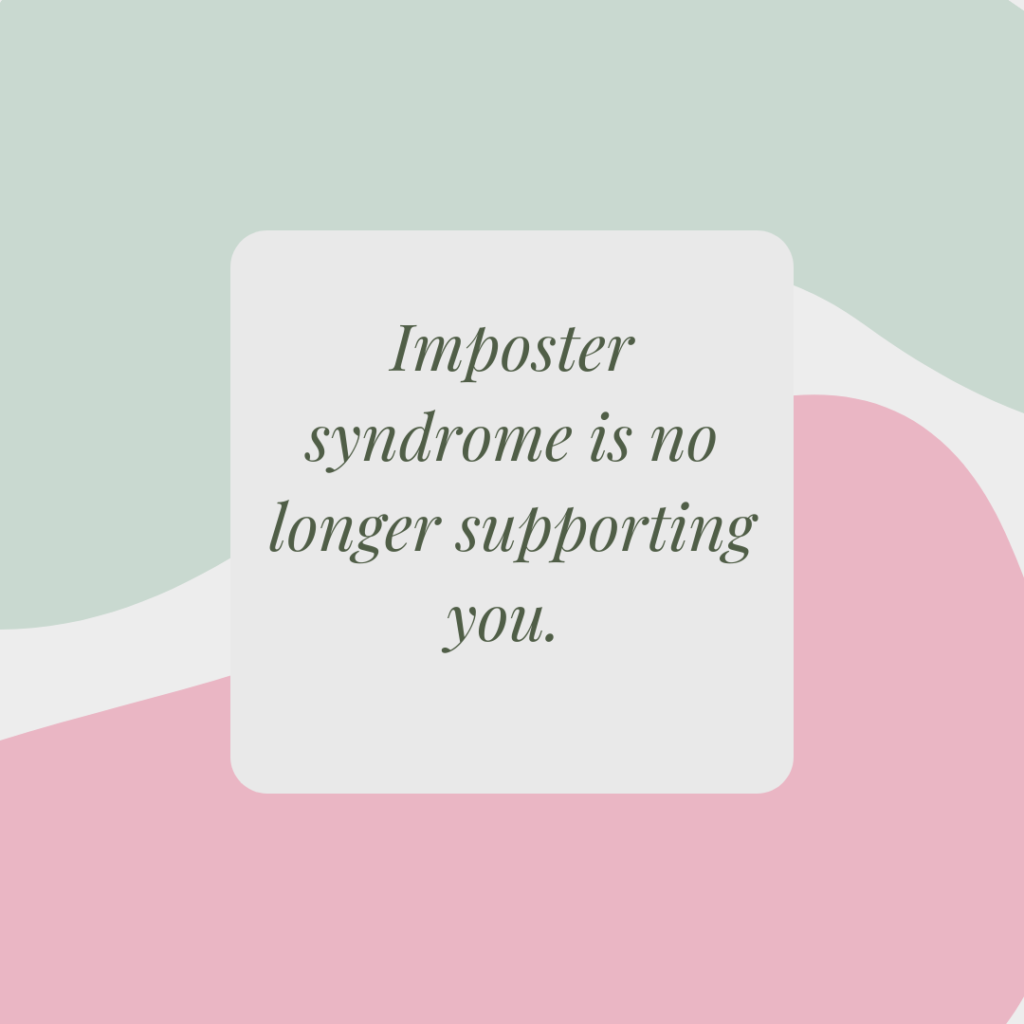
The Enthusiast (7)
Type Sevens are optimistic, and versatile but also perfectionists and critical. They fear being deprived or in pain, and they desire to be satisfied and content.
Perfectionists struggle with imposter syndrome when they continue to set incredibly high standards and expectations that lead them to bear the brunt of the work. Fearful of delegating, imposter syndrome haunts Enthusiasts when you continue to take on too much work.
Strategy: Set limits and boundaries to avoid overworking. In addition, put systems and people in place to help hold you accountable.
These systems — such as setting the alarm to signal the end of your workday or enlisting your friend to help you review your schedule — can help you avoid burnout. These same accountability partners will also offer additional support when you feel unmotivated due to burning out.
The Challenger (8)
Challengers are self-confident, strong, and assertive, but they resist weakness and fear being controlled by others.
You feel like an imposter most when you face situations that require you to admit you’ve made a mistake or when you need additional oversight to accomplish a new task.
Strategy: Refuse to engage in conversations where you feel encouraged to one-up someone else. Toxic competitions could further fuel the harmful effects of imposter syndrome long after the competitions and the conversations are complete.
You don’t have to prove yourself to anyone.
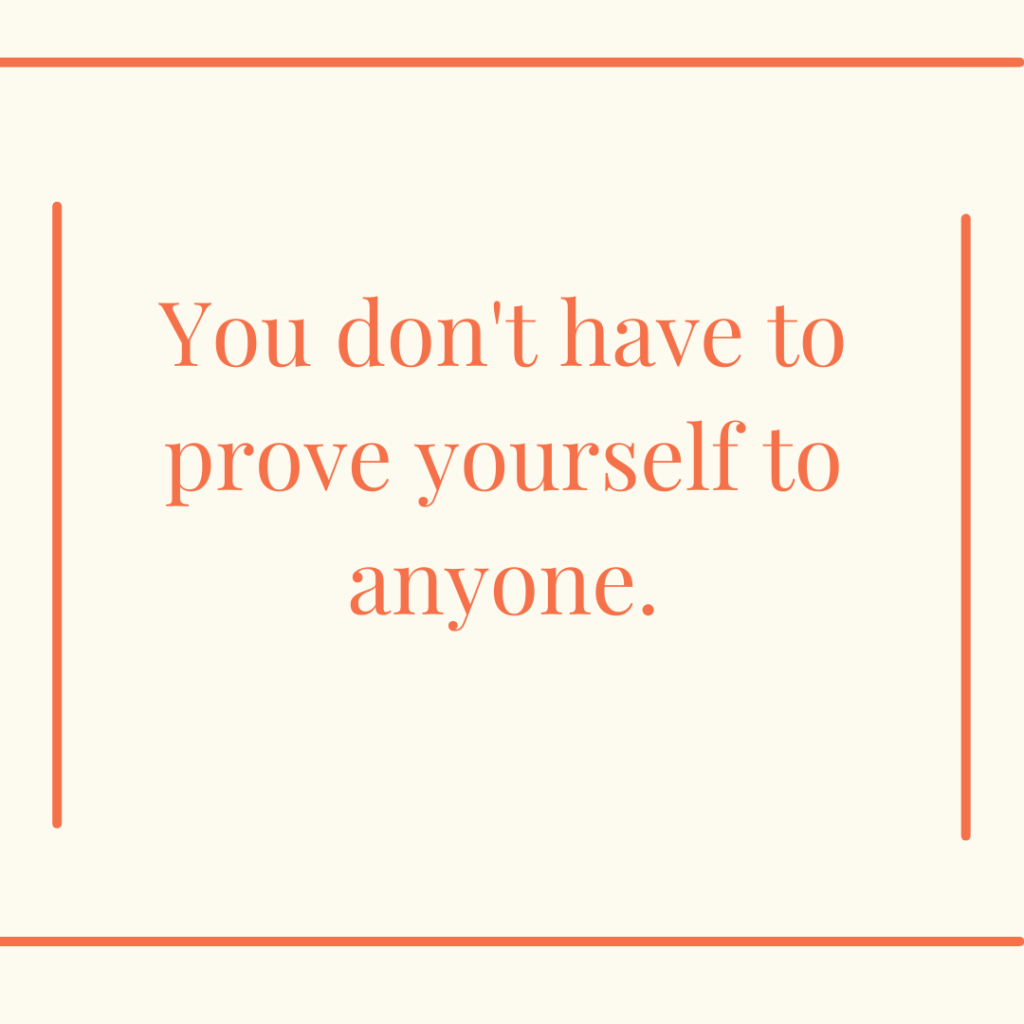
The Peacemaker (9)
You are accepting, trusting, and stable if you’re a Type Nine. You may have realized by now that you avoid conflict at all costs, even when it costs your peace.
Peacemakers simplify problems to avoid upsetting others, and those who identify as Nines desire stability and peace of mind. You feel like an imposter when you still can’t find peace despite your efforts.
Strategy: Make a practice of putting yourself in situations where you have to learn new things. It’s time to rely on your community to help you move into areas you find more challenging.
Now that you’ve recognized avoidance is only exaggerating the issues, practice being direct with others more often.
Additional Strategies:
Generalize your self-criticisms and consider if you’d still believe they were valid if someone else said them. You may not have experienced everything you’re thinking or coaching about, but that doesn’t make you any less knowledgeable or capable.
Do all heart surgeons have to have had heart issues? Not at all!
Passion for helping others is enough to make you a good coach or employee.
Talk to your therapist to normalize imposter syndrome and get help getting over it. Very few people use the term imposter syndrome to identify what they’re feeling, but it is more common than you might think. One of the most powerful things you can do is talk to someone.
Read more about overcoming imposter syndrome here if you’d like more information on what other factors contribute to imposter syndrome.
Now that we’ve identified strategies you may want to implement based upon your Enneagram number, let’s keep working on getting healthier and living well. Sign up to get my tips every Sunday to help you become happier, healthier, and enjoy life more.
